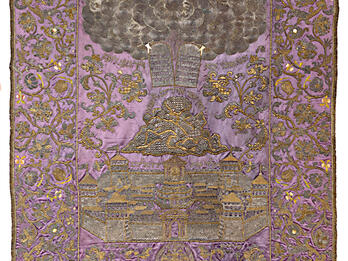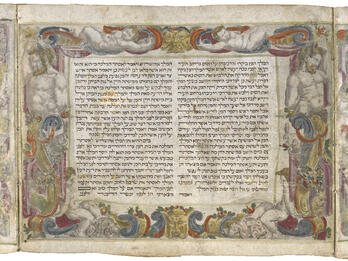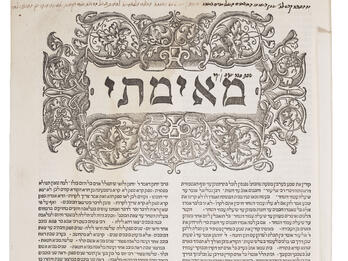Samuel Usque
Not much is known of Samuel Usque beyond a passage in his Consolação às tribulações de Israel (Consolation for the Tribulations of Israel) in which he describes himself as coming from a family of Portuguese New Christians of Spanish descent. He is thought to have been born in the early sixteenth century in Lisbon to a family originally from Huesca, Spain, and to have visited Salonika and Safed before settling in Ferrara, Italy, in the middle of the century. Usque was fluent in various languages and well-versed in classical, biblical, Jewish, and Christian literature. His sole work, written in the form of a Renaissance pastoral dialogue, appeals to New Christians to return to Judaism. It is cast in the form of a dialogue among three shepherds, one of whom, Ycabo (the Jewish people), recounts the history and tribulations of the Jewish people. The other two represent memory and consolation, respectively. The text, which he dedicated to Doña Gracia Nasi, provides insight into the contemporary reality as well as Usque’s personal experiences. Scholars consider Consolation for the Tribulations of Israel to be a significant work of both Jewish historiography and Portuguese literature. Most copies of the first edition (Ferrara, 1553) were destroyed by the Inquisition.



![M10 622 Manuscript, probably from Ukraine]. Manuscript probably from Ukraine, c. 1740 with a broad collection of practical kabbalah and mystical magic. Facing page manuscript arranged vertically with Hebrew text in the shape of a figure wielding two long objects.](/system/files/styles/entry_card_sm_1x/private/images/vol05/Posen5_blackandwhite166_color.jpg?h=cec7b3c9&itok=Sz6u21MQ)

